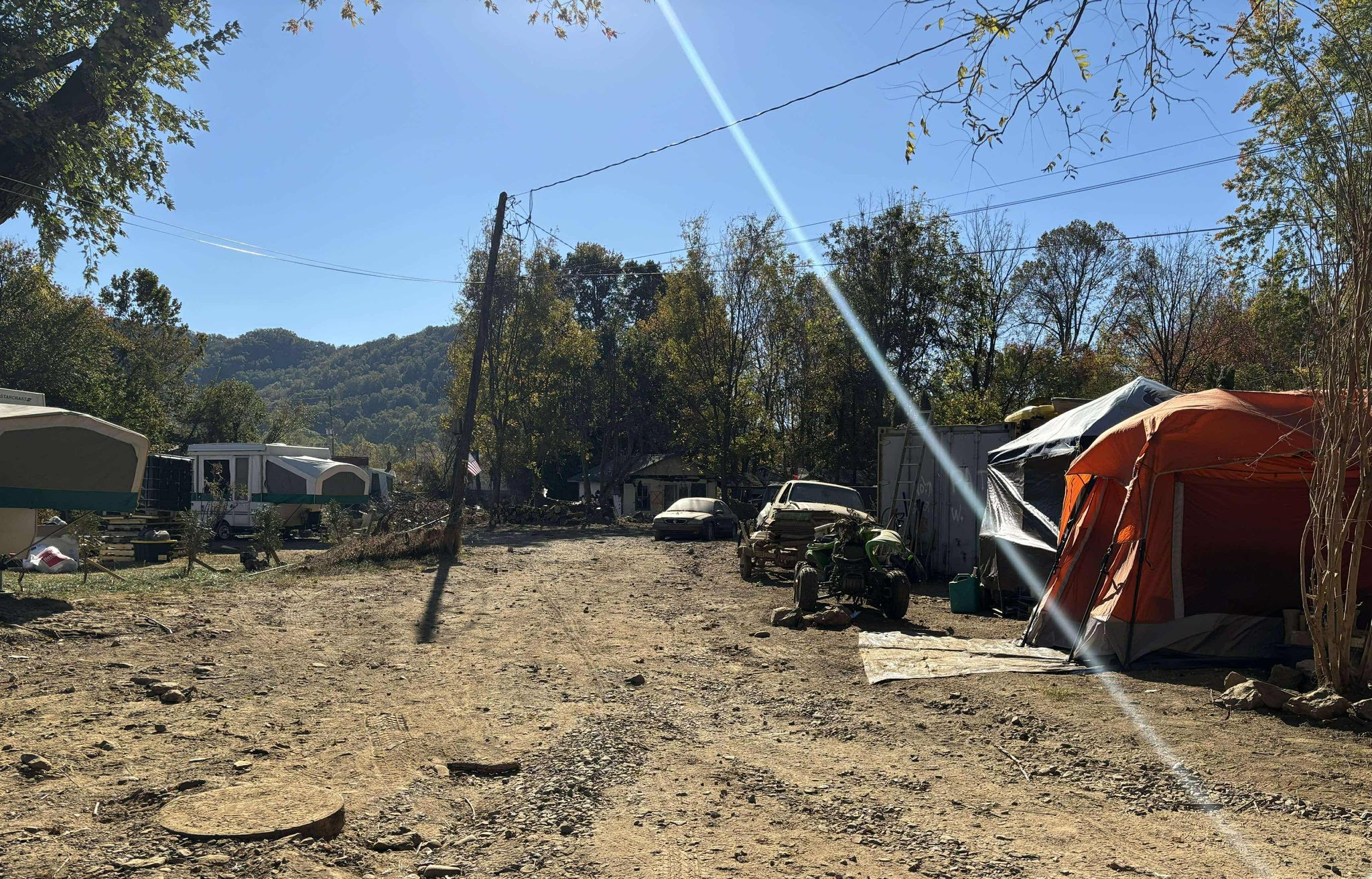Shoppers stroll along State Street in Black Mountain, North Carolina, toting bags from local boutiques and upscale stores. The autumn colors glow against the mountain backdrop. Outside restaurants on the town’s main street, tourists sit on benches, enjoying ice cream cones. Pausing at a red light, visiting motorists would find it hard to believe that just weeks ago, torrential rain from the deadly Hurricane Helene ravaged the region. Even more surprising is the reality that only six miles west on US-70, there are cars still stuck in trees, people living in tents, and a trail of devastation that leaves first-time onlookers speechless.
Downtown Black Mountain is open for business, bustling as a picturesque mountain town, while its neighboring community faces years of rebuilding.
The contrast is stark: tourists casually shopping just a few miles from American citizens surviving in tents on their neighbors’ lawns. This divide is symbolic of a broader reality—those untouched by tragedy often move on quickly. There’s no slight here against Black Mountain; it’s a relief that its main street thrives, as the community relies on tourism. But for someone who has spent weeks going to the area helping storm-ravaged residents slog through mud to reclaim some sense of normalcy, it’s jarring to see life seemingly move on while so many continue to struggle.
Our ministry has made seven trips into the devastated areas of Western North Carolina, and in many places, the scenes still look like something out of a disaster film.
In the age of a 24-hour news cycle, a hotly contested presidential election, and government transitions, it’s easy for the people of Western North Carolina to slip from public awareness. Although many towns are indeed back on their feet and open for business, the reality remains that tens of thousands of lives are still in pieces.
The more fortunate are huddled with their families in tiny, cramped campers, keeping warm with propane heaters. Others—often immigrant families I’ve met personally—live in tents on the banks of the Swannanoa River, the same river that nearly took their lives not long ago. As temperatures drop, while people donate stuffed animals to comfort children, the harsh reality is that many of these children are asking for propane to survive another bitterly cold night.
As the world moves on, please don’t forget the people of Western North Carolina—many of whom have not slept in a real bed since September.


Good https://shorturl.fm/j3kEj
Best partnership https://shorturl.fm/A5ni8
https://shorturl.fm/68Y8V
https://shorturl.fm/FIJkD
https://shorturl.fm/6539m
https://shorturl.fm/FIJkD
https://shorturl.fm/6539m
https://shorturl.fm/a0B2m
https://shorturl.fm/m8ueY
https://shorturl.fm/FIJkD
https://shorturl.fm/9fnIC
https://shorturl.fm/m8ueY
https://shorturl.fm/9fnIC
https://shorturl.fm/oYjg5
https://shorturl.fm/YvSxU
https://shorturl.fm/A5ni8
https://shorturl.fm/9fnIC
https://shorturl.fm/9fnIC
https://shorturl.fm/bODKa
https://shorturl.fm/a0B2m
https://shorturl.fm/6539m
https://shorturl.fm/oYjg5
https://shorturl.fm/YvSxU
https://shorturl.fm/nqe5E
https://shorturl.fm/Xect5
https://shorturl.fm/47rLb
https://shorturl.fm/JtG9d
https://shorturl.fm/0oNbA
https://shorturl.fm/LdPUr
https://shorturl.fm/PFOiP
https://shorturl.fm/hevfE
https://shorturl.fm/DA3HU
https://shorturl.fm/eAlmd
https://shorturl.fm/LdPUr